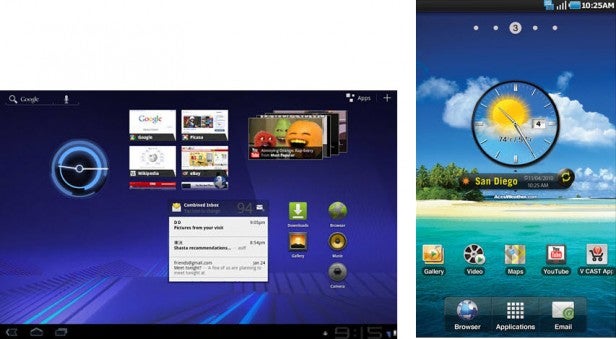Forced Medication: Why Google Hasn’t Taken To Tablets

This week Google fixed a flaw that never should have existed in the first place: it sewed its smartphone and tablet operating systems back together. This has rightly attracted a great deal of praise and huge amounts of media attention, but arguably what is more interesting is why the tear was there in the first place.
“Honeycomb was like: we need to get tablet support out there,” admitted Android’s head of user experience Matias Duarte in an interview on Tuesday. “We need[ed] to build not just the product, but even more than the product, the building blocks so that people stop doing silly things like taking a phone UI and stretching it out to a 10-inch tablet. So that was the mission, and it was a time-boxed mission. Any corner we could cut to get that thing out the door, we had to.”

This is a startlingly frank admission and as close as you’ll ever find a multinational corporation’s senior executive to admitting it released a product it knew was a botch job. More than this it is an admission Google was behind the curve, that it was being reluctantly forced down a path it hadn’t yet planned to tread. That tablets have always failed historically may provide some justification for this, but more worryingly it is Google’s core business model which makes them a hard fit.
Tablets are fundamentally about consuming content. Google is fundamentally about finding content. It is a crucial near miss. Whereas the iPad’s early launch saw it snag the lion’s share of third party app development, Apple was also crucially able to flood it with content. Music, television, films, iBooks… all things Google currently has to outsource. Apple had iTunes, Google is working on attaining the equivalent of iTunes, but Google Music has so far proved a half measure, its eBooks project is on hold because of legal action and the less said about Google TV, the better. Worse still none of Google’s hardware partners have the resources to assist. The notable exception is Amazon and it buried Android deep under the surface of the Kindle Fire and has been actively looking to purchase its own platform. Make no mistake Amazon is a Google rival and alongside Apple it looks like the best equipped to conquer the mass market.

Look away from mainstream consumers and you find the iPad dominating the enterprise tablet sector too with RIM the next obvious contender. Switch the focus from content to productivity and a reinvigorated, reimagined Microsoft looks set to take that market in 2012 with Windows 8. Yes when it comes to tablets it is worryingly tough to see where Google fits in.
Of course Google wouldn’t be Google if it didn’t have a few irons in the fire…

